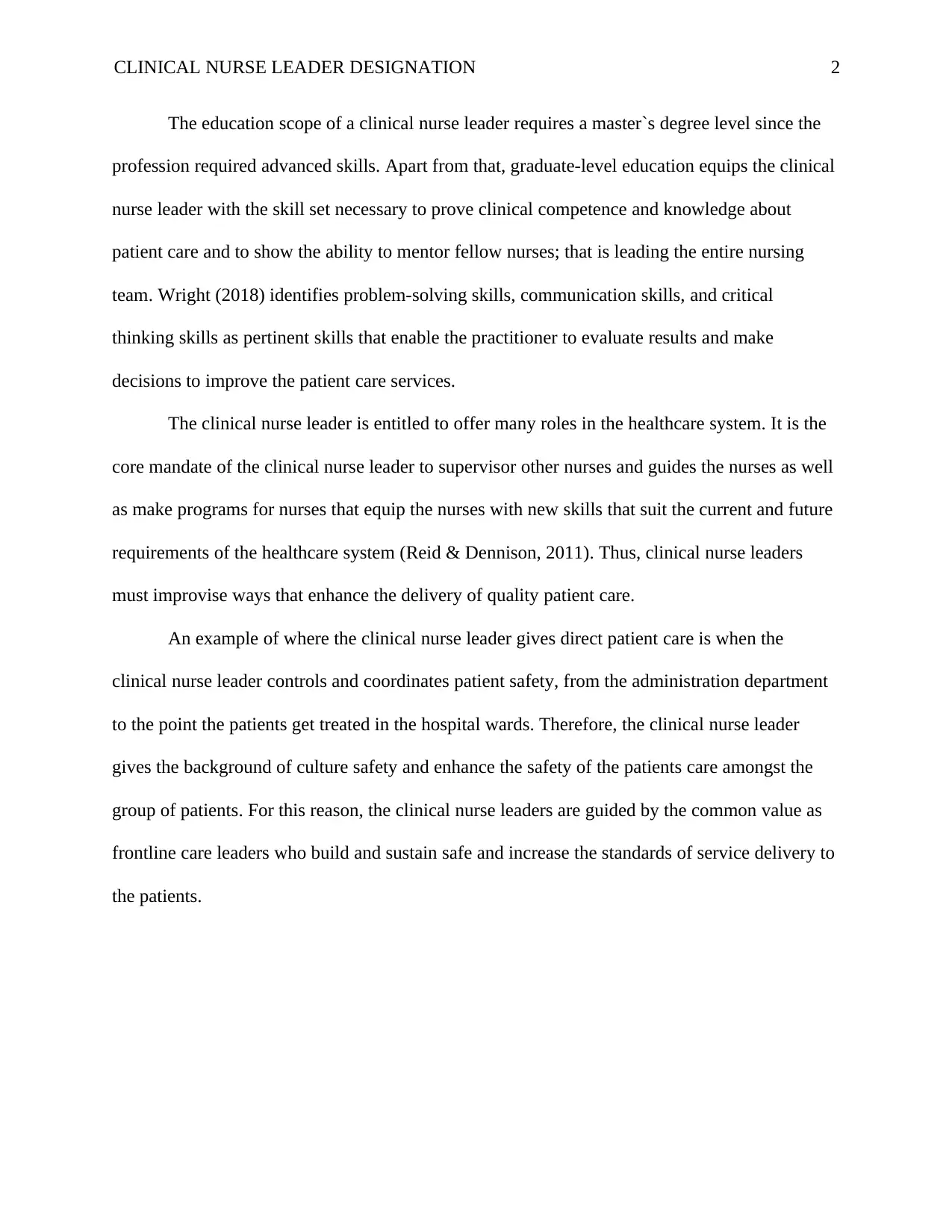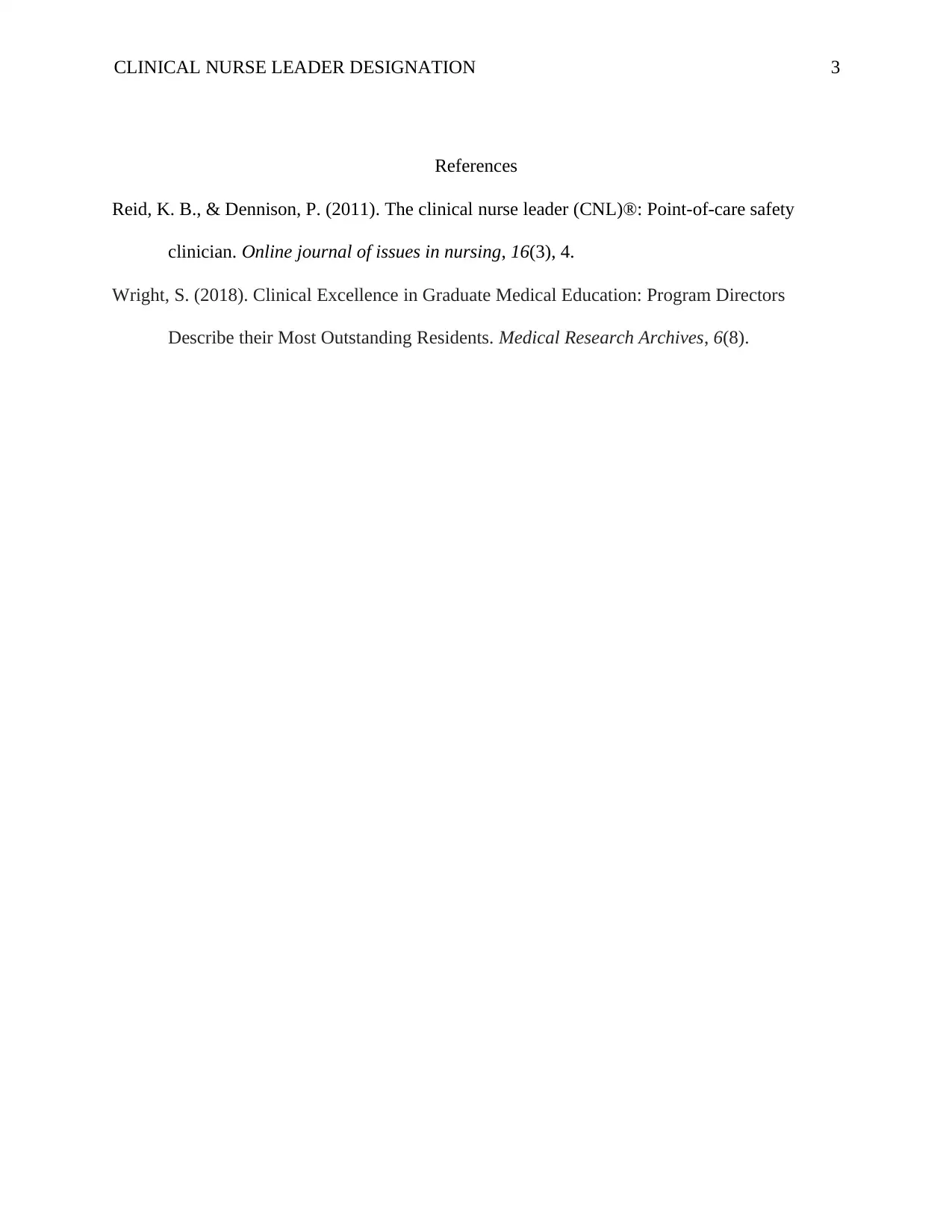Clinical Nurse Leader Designation: Healthcare Report Analysis
VerifiedAdded on 2023/04/21
|3
|379
|184
Report
AI Summary
This report examines the role of a Clinical Nurse Leader (CNL), emphasizing their responsibilities in patient care and leadership within the healthcare system. The report highlights the importance of CNLs in supervising and guiding nursing teams, developing programs to enhance nurse skills, and ensuring patient safety from the administrative level to the hospital wards. It underscores the need for CNLs to possess advanced skills and knowledge, including problem-solving and critical thinking, acquired through graduate-level education. The CNL's role extends to coordinating patient safety and promoting a culture of safety, ultimately aiming to improve the standards of service delivery. The report references key sources like Reid & Dennison (2011) and Wright (2018) to support the information.
1 out of 3









![[object Object]](/_next/static/media/star-bottom.7253800d.svg)